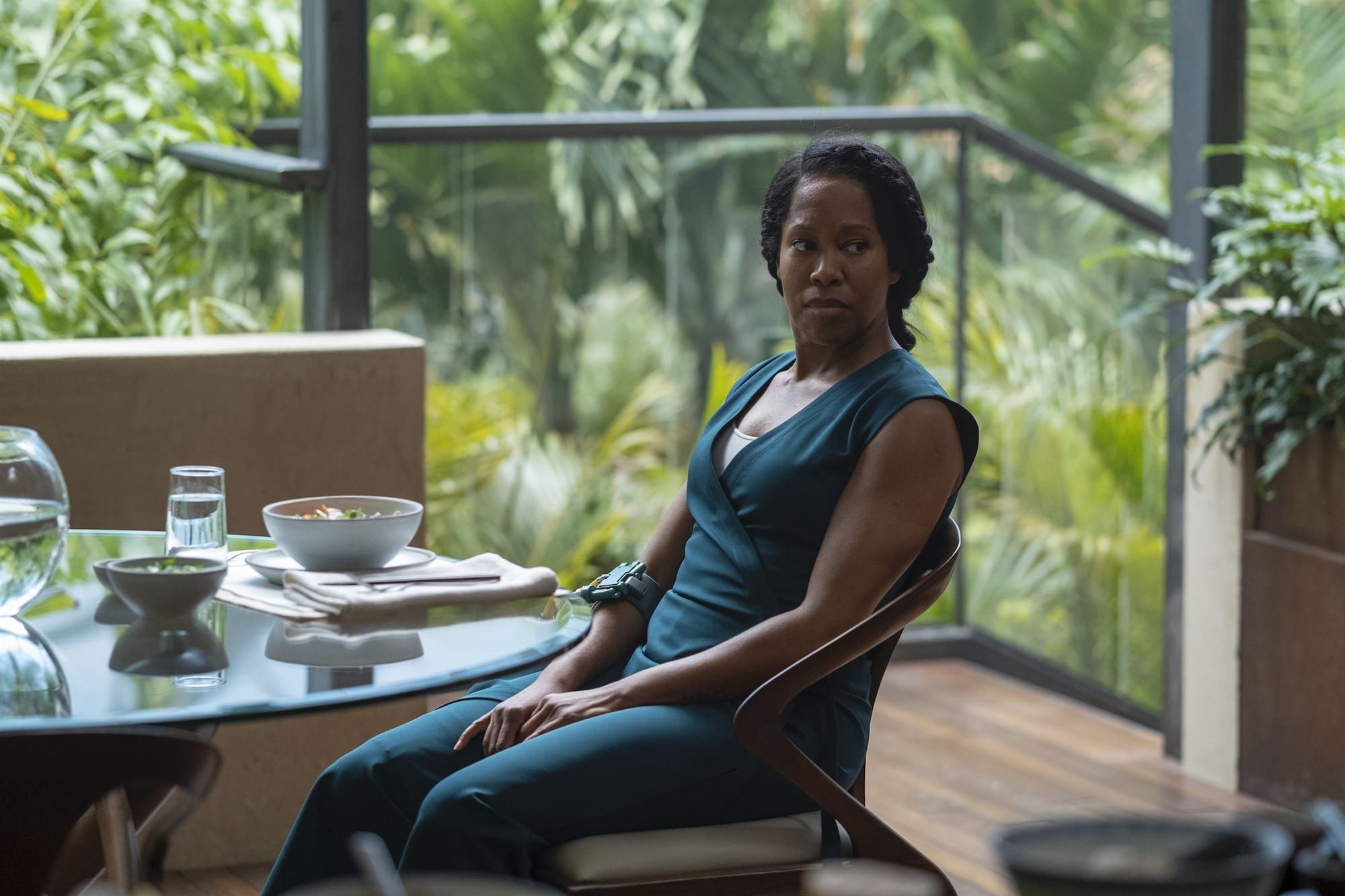
Another week, another mind-blowing episode of one of the best series on television. After spending last week lost inside her grandfather’s memories as the world’s first superhero, Angela Abar’s (Regina King) mysterious past finally begins to come into focus in Watchmen Episode 7, ‘An Almost Religious Awe.’
We would not be wrong to think we knew all we needed to know about Angela. We know she’s tough. We know she has a conflicting constitution of bucking authority while being a standard bearer of the law. We know she loves her husband and her adopted children, but they take a backseat to her quest for justice. And now we know that, in addition to being from Vietnam (America’s 51st state), she is also, unknowingly, the granddaughter of America’s first superhero, Hooded Justice.
What we didn’t know, however, was what her trauma was, and this is a series infatuated with the role trauma, both intimate and collective, plays in creating “heroes” and the myths that rise up around them. This week, the puzzle pieces around Angela’s personal trauma come into view as she undergoes treatment for “recollective infestation,” the unfortunate byproduct of overdosing on her grandfather’s nostalgia pills.
This treatment, administered by the mysterious Lady Trieu (Hong Chau), attempts to free Angela’s neural pathways from her grandfather’s memories, resulting in the sharp and unexpected reemerging of her own personal memories. This gives us the opportunity to plunge deeper into her past.
The daughter of a military man living in post-war Vietnam, young Angela is drawn to the blaxploitation heroine Sister Night because she looks like her (a small moment reflecting the power of diverse representation in media which is an impulse that runs throughout this series and is a hot button topic among modern comic’s readers). Sadly, she is denied the opportunity to ever actually watch the film, as her childhood’s natural course is disrupted by a sudden terrorist attack, blowing up her parents as she stands powerless across the street.
Soon, young Angela’s life is thrown into chaos. We see glimpses of her life in a Vietnamese orphanage, including the moment where a policewoman honored her vengeful bloodlust with admiration and an invitation to join the police force once she reaches adulthood. Eventually, her estranged paternal grandmother, who was also the infant whose rescue kicked off this series, comes to rescue her from her lonely plight. They share one wonderful meal before Angela watches her grandmother die of a heart attack.
All of these scenes of Angela’s past are beautifully crosscut with the moments from her grandfather’s past which are now embedded in her consciousness. Far from dislodging these memories, the process Lady Trieu has initiated is allowing Angela to experience the traumas of her life in the full context of her familial heritage. This effect, provocatively rendered, wraps her life around the long arc of familial history (and with it, social history by implication) through moments of interconnectedness which are only clear upon hindsight. It’s a powerful display of visual storytelling, evocative of the Amazon series Transparent that similarly tackled inherited trauma in its brilliant second season back in 2015.
Elsewhere on the show, Lori (Jean Smart) connects the dots to learn that Judd Crawford (Don Johnson) was killed by Will (Louis Gossett Jr.) because he was a secret member of the Cyclops, which has evolved into the 7th Cavalry. She rightly predicts that Senator Joe Keene (James Wohl) is the true mastermind, creating a conspiracy that would lead to his ascension to the presidency. She confronts Crawford’s widow (Frances Fisher), who surprises us by admitting to everything before kidnapping Lori and bringing her to Senator Keene. As always, Jean Smart is masterful as someone who so desperately wants to be over all of this (“I’m tired, Joe. I’m tired of all the silliness…I just don’t give a shit.”), but she just can’t quite snuff out that corner of her soul that bends towards justice.
Meanwhile, Adrian (Jeremy Irons) is contending with a wholly different kind of justice, as the clones he’s birthed and abused put him on trial for an entire year, during which he refuses to honor the proceedings without any amount of respect or recognition. Once again, this is the most opaque section of the series. A tease by Lady Trieu that her unnamed father would soon be joining her to help save Doctor Manhattan may be the lifeline that this plotline needs to finally tether it to the main course of events.
Watchmen Episode 7 concludes on Angela. As she attempts to come to grips with the sheer weight of history, she also is trying to get to the bottom of Lady Trieu’s true agenda. Why is she working with Angela’s grandfather, Will? Why is she feeding memories to her inexplicably brilliant daughter? What is really going on with this Millennium Clock, which is set to officially launch in a few hours? Shockingly, Lady Trieu actually doles out answers. Her daughter is actually a clone of her mother. Will needs both Lady Trieu and Angela’s help to foil the 7th Cavalry’s masterplan to kidnap Doctor Manhattan, who is in Tusla posing as an ordinary man and steal his power. Angela scoffs at these revelations in a way that might just be a bit too performative, before she flees the facility in order to rush home. There she informs her clueless husband Cal (Yahya Abdul-Mateen II), “It is time to come out of the tunnel” before bashing his brains in, liberating Doctor Manhattan in the process.


Comments are closed.